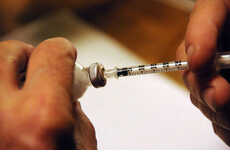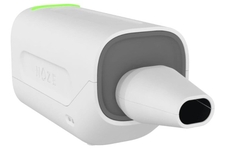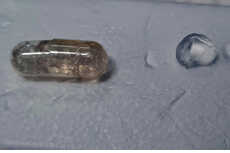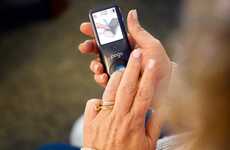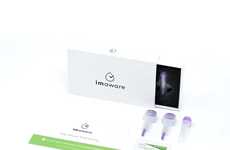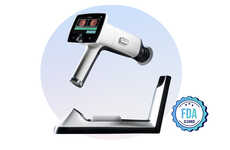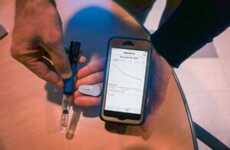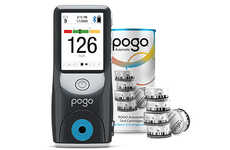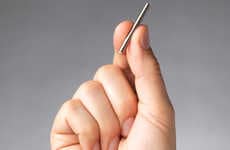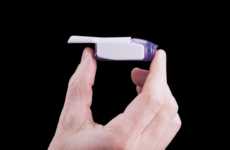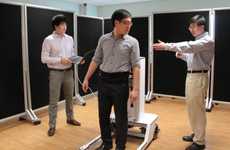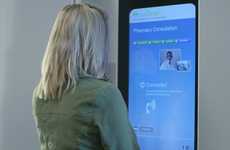
New Technology from Stanford Makes an Instant Diabetes Diagnosis
Alyson Wyers — July 23, 2014 — Tech
References: med.stanford.edu & gizmodo
Thanks to research performed at Stanford University, an inexpensive microchip can make a diabetes diagnosis in a second. The tiny and instantaneous technology can scan for type 1 and 2 diabetes in a fraction of the time it takes other tests for the same medical condition. The test is even reusable for up to 15 patients and can be administered on site.
The approximately $20 chip is the size of a small glass slide and uses "an array of nano particle-sized islands of gold, which intensify the fluorescent signal, enabling reliable antibody detection." These antibodies are found in both type 1 and type 2 diabetes, thus their detection is key in making a diabetes diagnosis.
A misdiagnosis can often occur under current healthcare systems due to a lack of standardized testing. This microchip could change that.
The approximately $20 chip is the size of a small glass slide and uses "an array of nano particle-sized islands of gold, which intensify the fluorescent signal, enabling reliable antibody detection." These antibodies are found in both type 1 and type 2 diabetes, thus their detection is key in making a diabetes diagnosis.
A misdiagnosis can often occur under current healthcare systems due to a lack of standardized testing. This microchip could change that.
Trend Themes
1. Instant Disease Diagnosis - The development of disease-diagnosing microchips is a potential disruptive innovation for rapid and accurate health assessments.
2. Inexpensive Medical Technology - The creation of low-cost microchips can disrupt the medical industry by making diagnostic tests more accessible and affordable.
3. Standardized Testing in Healthcare - Standardizing medical tests through microchip technology can enable better healthcare diagnostics and treatment plans.
Industry Implications
1. Healthcare - The healthcare industry can utilize disease-diagnosing microchips to optimize diagnosis and treatment plans.
2. Medical Technology - The development of inexpensive microchips revolutionizes the medical technology industry by making medical tests efficient, accessible, and affordable.
3. Biotechnology - The biotech industry can leverage microchip technology to develop disease-detecting tools for pinpoint and rapid disease diagnostics.
2.1
Score
Popularity
Activity
Freshness

